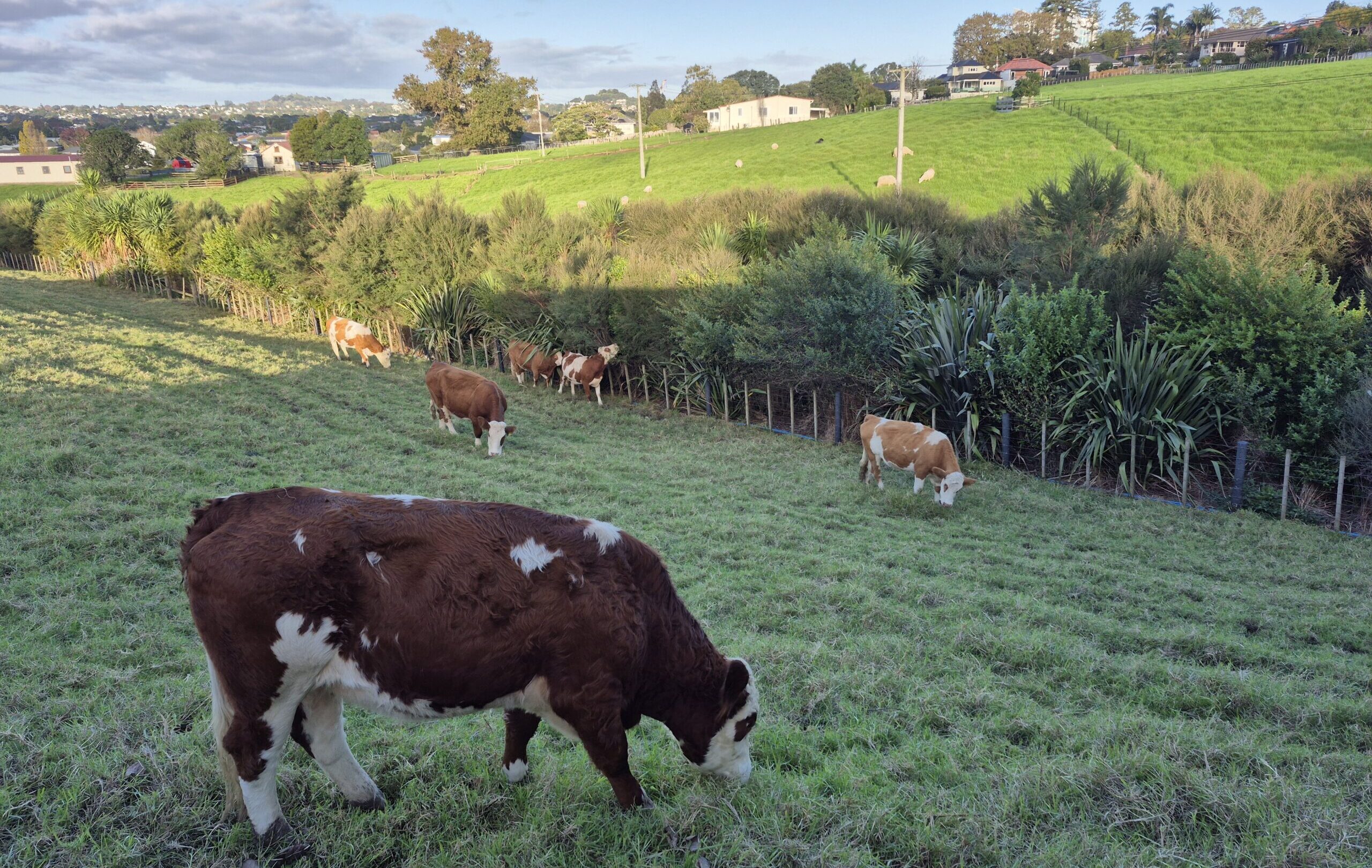By Gerald Piddock
Copyright farmersweekly

Reading Time: 3 minutes
Mount Albert Grammar School’s farm is fostering the next generation of people who will play a key role in keeping the engine room of the primary sector running.
The 8.1 hectare farm in the heart of Auckland teaches ag and hort science as well as agribusiness to more than 200 students in Years 10-13.
MAGS Head of Agriculture Coadette Low said the school has had to establish three more classes because of increased demand since she started the role in 2023.
“The majority of them are looking to probably not be necessarily working as shepherds, on farm or on orchard. They are looking to do ag science, hort science, animal science, or ag commerce at either Massey or Lincoln university.
“They are looking at going into other parts of that chain,” Low said.
Some of the school’s boarding students study ag to be farmers and often go on to cadet training farms such as Otiwhiti or Pukemiro Station.
“There’s a handful that choose that, but the vast majority of our students do it because they want to go into marketing, animal nutrition, or agronomy.”
Some of her agribusiness students are eyeing careers in accounting or economics and have realised the importance of understanding the primary sector if they wish to succeed, she said.
“One of my students, he’s done both ag science and agribusiness for the last couple of years and he wants to be an accountant, but he wants to be an accountant with one of the big primary sector firms.”
Studying agribusiness will help him achieve that, Low said.
Looking back at the events that roiled agricultural education earlier this month, Low said that while the government’s removal of ag-hort sciences and agribusiness as subjects came as a shock, their speedy re-inclusion was indicative of the pressure that educators, primary industry and the community are able to put on the government.
She doubted the U-turn would have happened as fast if not for that pressure.
“There was a huge backlash. I had people contact me asking what it means.”
Had the downgrading of the subjects gone ahead, MAGS would have had to switch its Ag/Hort Science Programme to a vocational pathway. And the agribusiness programme would not exist.
The school has the advantage of having the farm at its disposal, but schools that do not have that resource would have had to fold their programmes or outsource them, which can be challenging.
Nor is the fight over, as agribusiness educators would still like to see that subject taught as a stand-alone subject, Low said.
The school works closely with Massey University, with the university’s head of the School of Agriculture and Environment Paul Kenyon regularly speaking with students about the importance of food and fibre production in New Zealand.
Low has observed a changing perception of the primary sector among students in the three years she has been at MAGS.
“The classes – they are all so supportive and engaged. There’s no thoughts of ‘This is the dropout subject’. Rather, ‘This is quite cool, look what we’re learning’.”
Low believes perceptions are slowly changing among the wider community too, as they begin to see the importance of studying the primary sector in their children’s education, particularly if their child excels in that subject.
The school farm was established in 1932, when the Auckland Institute of Horticulture decided that city children were losing knowledge of farming practices and asked Mount Albert Grammar to teach agriculture and horticulture.
ASB became involved on a charitable basis, and legislation was passed to allow the bank to buy land from a neighbouring farm and lease it back to the school at a peppercorn rental.
In 2013, a new lease agreement was signed between ASB and the Mount Albert Grammar School Board of Trustees, with ASB leasing the land to the school for a 99-year term.
This was superseded in 2022 when ASB gifted the farm to the school via the MAGS Foundation.
Looking ahead, Low believes not too much will change on the farm and how it is run. But she is interested in introducing more technology to the farm to reflect the latest innovations in the primary sector and ensure it remains relevant to students.



